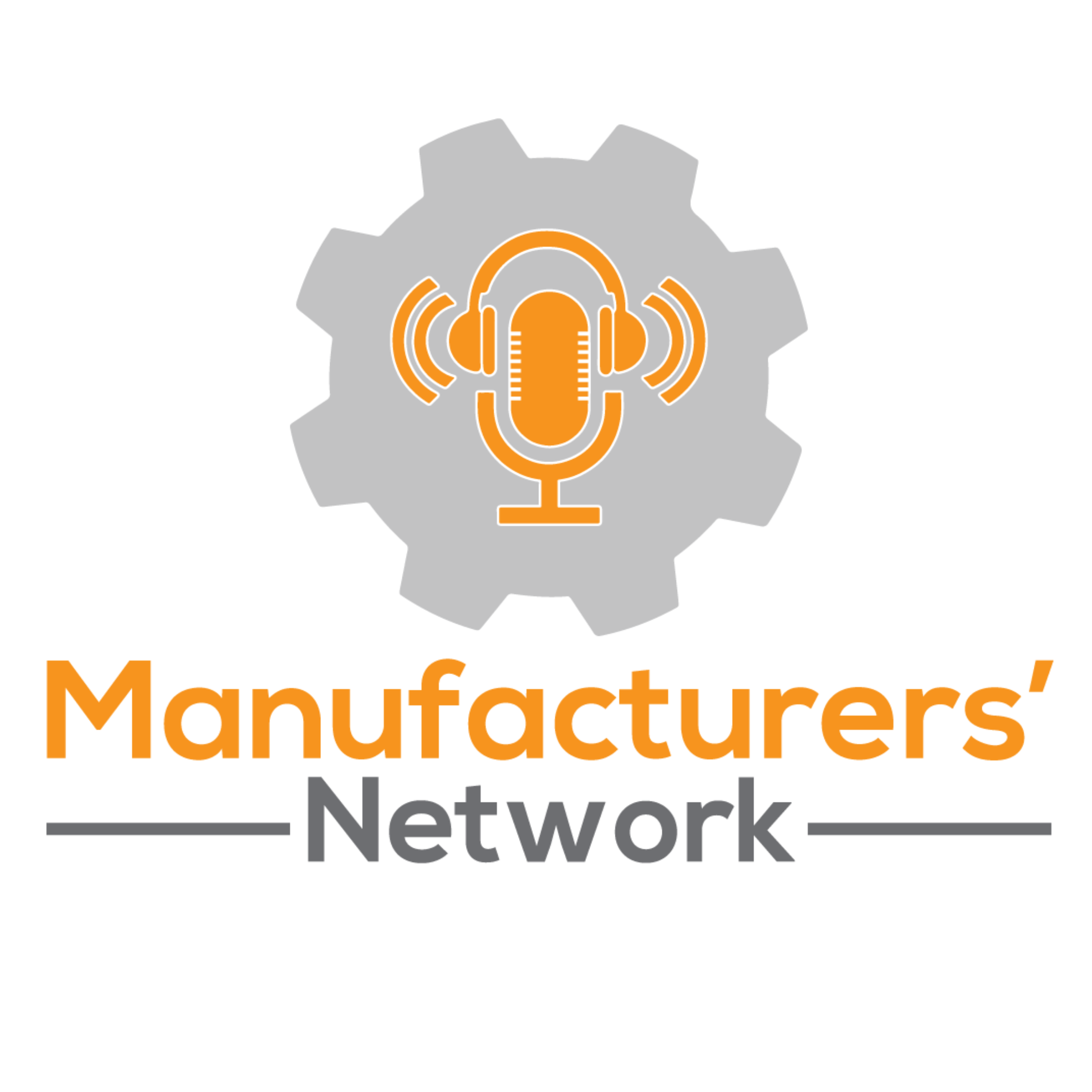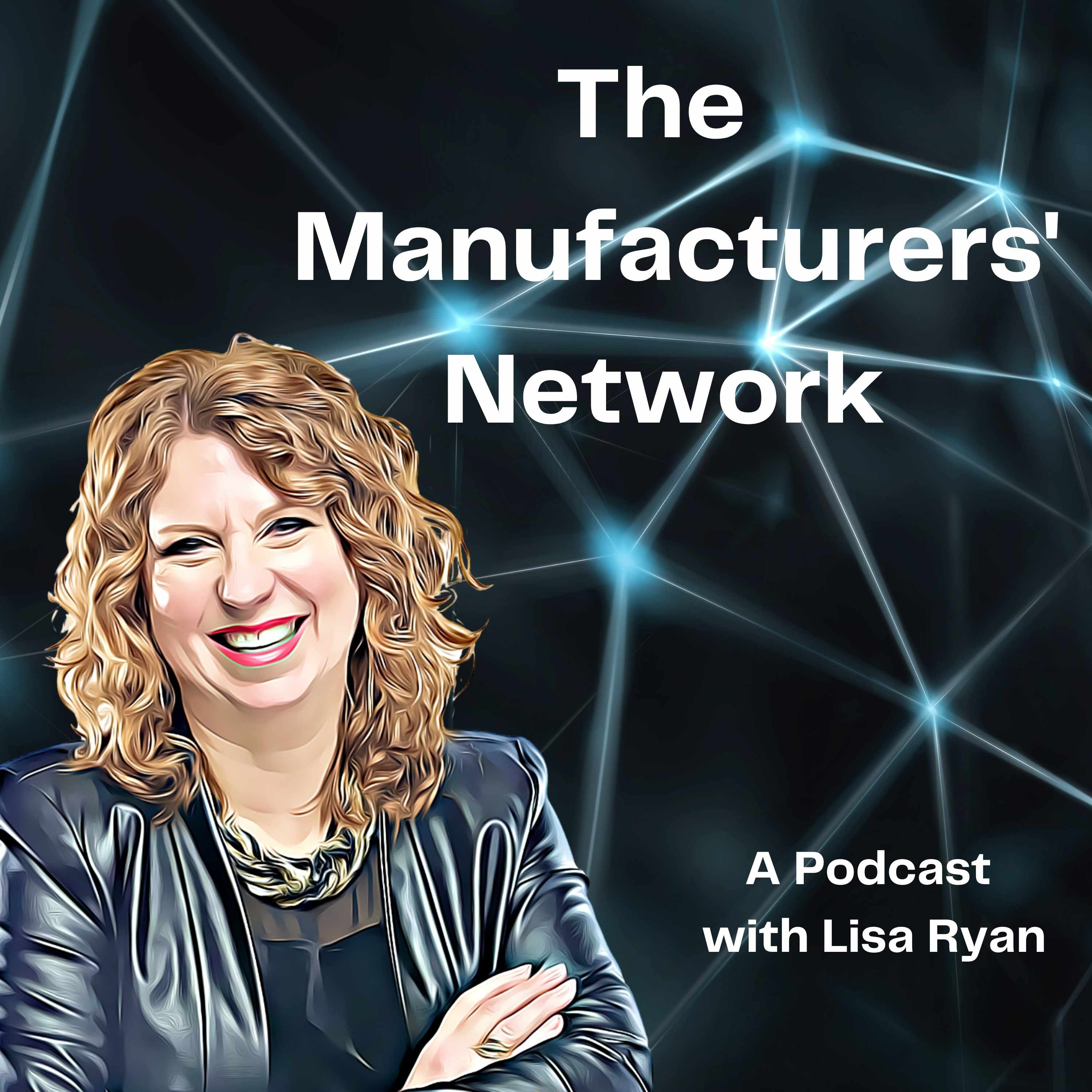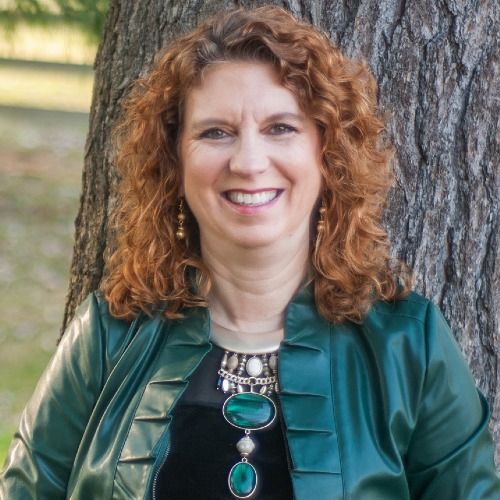White Collar, Blue Collar, NEW Collar: Designing Your Digital Marketing Strategy with Suzanne O'Connell
Connect with Suzanne O'Connell:
Email: soconnell@certifiedThomaspartner.com.
LinkedIn: https://www.linkedin.com/in/suzannemoconnell/
Lisa Ryan: Hey, it's Lisa Ryan, and
welcome to the manufacturers' network podcast. I'm excited to introduce you to
our guest today. Suzanne O'Connell. Suzanne is a mechanical engineer and
certified Thomas partner. She has 28 years experience in manufacturing and 20
plus years in digital marketing, and nearly a decade serving Thomas industrials
B2B clients. Welcome to the show.
Suzanne O'Connell: Lisa, Thank you so much
for having me. Glad to be here.
Lisa Ryan: So as we get started. That
is a lot of engineering and manufacturing in your background; tell us a little
bit about your journey that made you decide to do that.
Suzanne O'Connell: Well, I always loved math
and science, so pursuing mechanical engineering was a natural path for me.
Ironically, I started in computer science. And then I fell in love with HVAC
and refrigeration - thermodynamics
classes, if you will. So I changed to mechanical engineering. I started in
product development, and I was writing selection software for a manufacturer of
cooling towers, evaporative fluid coolers -product lines like that. I realized
that I like people as well. And when you're coding software, you're not getting
a lot of interaction with people. So I naturally progressed into an inside
Technical Sales role and then into outside sales roles, and finally into the
consultation role that I have at Thomas.
Lisa Ryan: And I know that you do a
lot with digital marketing and there's so much going on with this whole
internet of things. Please share with us a little bit about what that is in how
it's impacting that industrial space.
Suzanne O'Connell: Well, there's a lack of
skilled employees, which is further driving the adoption of automation. And
there's an accelerated trend to embrace and deploy the Industrial Internet of
Things. So businesses are now driving scale through technology, and they're
able to collect more data than they ever have been able to previously.
Lisa Ryan: So when you're talking
about automation. How exactly does industrial automation change the way these
traditional job roles are viewed?
Suzanne O'Connell: Well, the drive for
automation and technology on the shop floor is transforming the way that we
look at the future infrastructure and work opportunities and manufacturing;
historically, we've been divided between blue-collar and white-collar jobs, we
see the emergence of new collar jobs that combine complex technology and data
with traditional manufacturing capabilities.
Lisa Ryan: Why know that one of the
things we've seen in the last several years is this large influx of millennials
into the industrial space. So how have you seen this demographic creating those
new opportunities and challenges?
Suzanne O'Connell: Well, it's an exciting
time where we're about 50/50 between our millennial managers and our baby
boomer generation. So that's changing dynamics in the office. And this new
generation has very different requirements for doing business. They've grown up
with the internet their entire life. They're used to getting things in an
instant, and they don't tolerate slow any longer. So it's creating some
interesting dynamic tension between employees and business and their customer
base as they rise in positions of authority. We are also seeing our baby
boomers adapt to millennial behaviors. So we see a lot more engagement electronically
versus phone activity that we have seen historically.
Lisa Ryan: One of the questions that
I get a lot from my clients is attracting Millennials and Gen Z into this
industrial space. So we're looking at this IoT; we're looking at all of this digital
automation coming in. But what are companies using to attract these new
generations?
Suzanne O'Connell: I think they're naturally
attracted to technology and the reporting capabilities and things that come
with that. Whether they're taking roles in purchasing and doing online
sourcing, taking roles in marketing departments where they're able to do
digital initiatives, or working out on the shop floor, they're using the latest
and greatest technology on that equipment.
Lisa Ryan: We've talked for the past
year about how it has impacted how manufacturers are marketing their products.
So what do you see that's different this year regarding industrial marketing
efforts.
Suzanne O'Connell: Well, there's an
acceleration. There's a need to have a digital presence more than ever. Some of
the other methods of reaching customers, like trade shows, fell by the wayside
because of the pandemic. Adjusting from word of mouth, “they'll call me if they
need me” mentality to develop basic strategies to lead and nurture prospective
customers, providing a buyer's journey through content and their own digital
presence.
Lisa Ryan: And so what would be when
you don't have access to historical things like trade shows? Share a little bit
more about what that agile strategy would be something that somebody listening
today might consider implementing.
Suzanne O'Connell: So you have to have kind
of a comprehensive and cohesive strategy. It's a long, complicated buying
process now, and multiple stages take place. And different types of content
support visibility throughout that buyer's journey.
We're finding that not only is it long and complicated, but it's
also primarily self-guided so the need to reach somebody at an earlier entry
point in the conversation has become a marketing necessity. We're seeing many
of our customers adopt the educational type of content in ebooks, white papers,
and case studies.
People are early on in new product development stages or a new
project; they have content to support visibility within the research stages. So
moving from there, you know, you have to have a good foundation in the website.
That's what all of your digital marketing efforts are intended to drive
visibility and opportunity to. You need to build quality traffic because it's
not just about reaching more people; it's about reaching the right people.
We're finding our clients are developing strategies for their niche focus: who
are their buyers? What are the capabilities that set them apart from the
competition? and trying to market specifically to those business objectives,
rather than just throwing things at the wall to see what sticks.
Lisa Ryan: And I know that Thomas has
done a lot of research in that area. So what would be one of the studies you
were talking about? What are the steps in the industrial sourcing process?
Suzanne O'Connell: Yeah, so we did the most
comprehensive study that's been done into the industrial buying process, and we
uncovered that there can be up to 139 touches that take place from someone
establishing a need to making a purchase decision. We found that holds true
regardless of Industry focus, job function within the organization, or product
and service being sourced. They're looking for ways to speed that process up.
They funnel down into six distinct stages. I think I mentioned
research as being one of those - design & evaluation are other steps that
we see. But the biggest frustration we hear from buyers and suppliers is the
time it takes to produce a quote. So our clients are looking for faster, more
responsive ways for their sales team to follow up on leads. They're looking for
more qualified leads to come through so that they have to do less to nurture
those. It's a combination of a lot of things.
Lisa Ryan: So 139 steps. Holy cow. At
what are you seeing as far as being able to, you know, speed up the process.
What are some of the sourcing trends that you're seeing within Thomas, and do
you expect that to continue into this year?
Suzanne O'Connell: Yeah, so it just speeds up
the process; Thomas has done some things on our platform to make it easier to
get the job done. We've introduced supplier validation filters. The ability to
filter on quality and diversity. All different things that matter to people
when they're buying products.
So we're trying to continue to make improvements to the platform
to make it easier for them to find the right supplier. For our clients, we're
making sure that they're accurately represented in the space. So making sure
that there's a lot of really robust content about what they do and who they do
it for so that when people are looking for their products or services they have
good accurate information, and it makes it easier for them to be found.
So as far as sourcing trends and just in general, anything that's
packaging, bottling, private label - that's going through the roof. Obviously,
things that are related to PPE are through the roof. But we see an uptick in
sourcing across all products and services, which is fantastic. It shows the
strength of manufacturing, which we love to see, but there's a lot of reasons
for that. There's reshoring that's going on. There are hiccups in the supply
chain that are still taking place from shut down, you know, last spring. So
there's going to be a continuation of needs and then new products coming out
due to changes that are taking place in society.
Lisa Ryan: So let's back it up for a
couple of minutes here. If somebody is not familiar with Thomas and precisely
what it is that you do. Can you just share a little bit about what you do?
Suzanne O'Connell: Sure. So Thomas has four
centers of excellence, Thomas net.com is our supplier sourcing platform. At the
risk of dating myself, we had the Thomas register, which were big green books.
I sourced out of those in my first job out of college. In 2006, we took
everything online. We stopped printing the Thomas register. We now have over
70,000 categories that represent products and services, system Integration;
anything that's manufacturing related. We have 1.2 million active registered
users using the platform to find Suppliers for those products and services. So
that's one area of excellence for us.
We have our product data solutions group, so very advanced web
solutions – everything you need from interactive product catalogs, eCommerce
solution, we're even doing 3D CAD and BIM on the fly for clients. And so a lot
of strength with our technology there. And then we're a full-blown digital
marketing agency. So anything that impacts our clients online: website
development, search engine optimization, even full comprehensive inbound
marketing strategies that we implement on their behalf.
Our latest segment is our industry data. We used to talk about our
data within Thomas net.com, but there's been so much interest in it that we've
pulled it out into its own pillar. So Thomas is sharing sourcing trends and
index reports. There's a lot of power in first-party data, and we track
everything that's on the platform, so we're able to identify trends in
sourcing, and pockets in the US where there's more opportunity for those
products and services. We even had a roundtable at the White House.
Lisa Ryan: I am one of the people who
used the Thomas register. So I'm very familiar with the big green books.
Suzanne O'Connell: See, you still see them on
the shelf in some clients' offices, which always makes me smile.
Lisa Ryan: So what are some of the
challenges with family-owned manufacturing businesses that they're facing
regarding such succession. And what does Thomas's data forecast as far as those
kinds of businesses?
Suzanne O'Connell: Well, we're seeing many
businesses consolidating through private equity acquisition, specifically
custom manufacturing businesses. A lot of those were started after World War
Two and handed down to the second generation. They're attempting to make their
way to the third generation. But many of their family members aren't interested
in continuing that business. So there's not often a family member or a staff
person to step into that leadership role.
Some of these businesses were run as more of a cult of
personality. At the end of the day, they don't have processes and systems to
help them survive a transition without outside funding and leadership. And I
think that's what we're seeing primarily with custom manufacturing.
Lisa Ryan: Interestingly, you say
that because that's what has happened with my husband's company. They were on
the second generation, and there wasn't a third generation to hand it down to
except for one son, the rest of the kids didn't really have an interest in the
business, and they were recently sold to private equity.
Suzanne O'Connell: Yeah, and you know it's
interesting to see with these acquisitions what takes place, as some of them are
holding companies where they're beefing them up to be sold yet again. So I
think it's pretty fascinating.
Lisa Ryan: When it comes to a company
looking at upping their game with digital technology, what would be your best
tip to help them get started.
Suzanne O'Connell: I think starting with
understanding what their digital footprint looks like currently is first and
foremost, that foundation is solid. Some of the other initiatives that you can
take on are a lot like landscaping before the house is built right, so you have
to see where you are currently. Most companies have a pain point - what is the
hole in their current marketing that they're trying to fill?
You can customize strategy around any marketing budget, right? And
there are differences. You can be more aggressive if they have the funding to
do that or be more conservative and tackle what needs to be done first. So,
often, I'm talking with clients and giving them different engagement levels,
helping them understand what they need to do now, but where they're likely to
be two, three years from now, they're planning with that bigger picture in
mind.
Lisa Ryan: And how are some of the
ways you help the clients you work with. And what's the best way for people to
get in touch with you if they want to learn more.
Suzanne O'Connell: I begin by listening to
their business objectives and aligning digital marketing initiatives with
those. Whether they partner with Thomas or not, I want them to have a better
understanding of what today's buying process looks like at the end of the day.
And what they need from a digital strategy to ensure their success long term. A
complimentary customized strategy we can look at together to know where I would
start with anybody that had an interest.
Lisa Ryan: And what's the best way
for people to get in touch with you.
Suzanne O'Connell: LinkedIn is great. My
Email address is soconnell@certifiedThomaspartner.com.
Lisa Ryan: Thank you so much for
being on the show today. It's been great to have a conversation with you.


